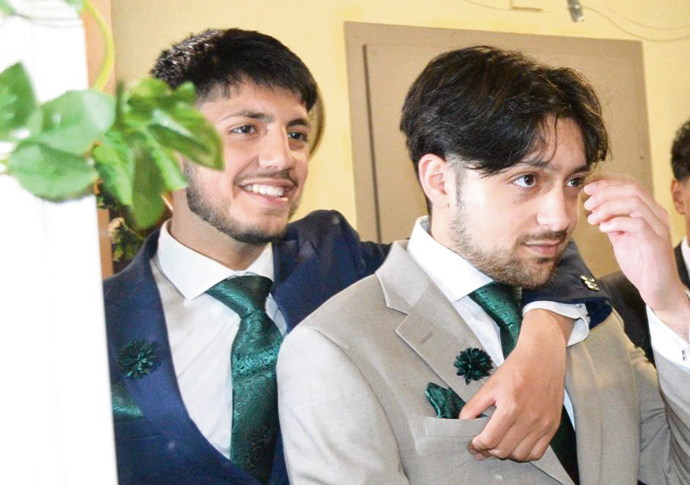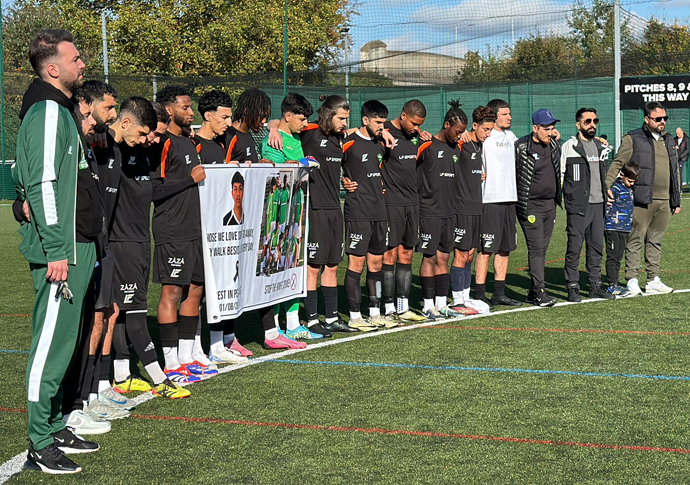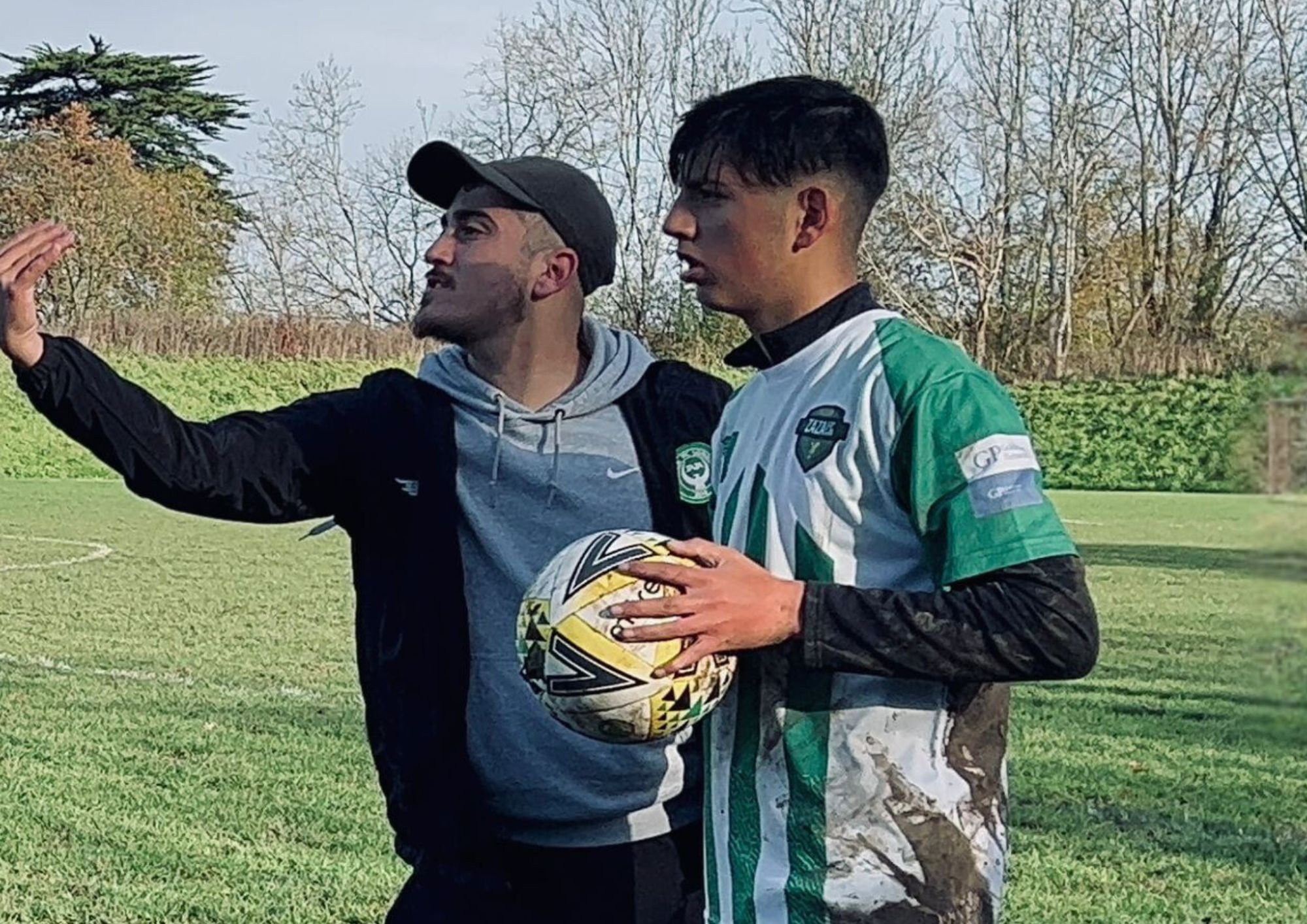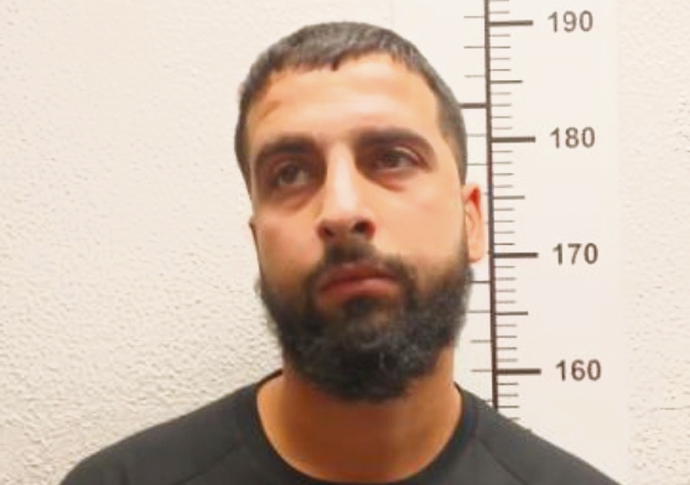I don’t believe he intended to kill Abdul – in a sense that made it worse
As killer is jailed for 24 years, brother of footballer whose life was cut short by machete attack calls on politicians to tackle causes of knife crime
Friday, 25th July 2025 — By Tom Foot

Abdul Latif Pouget (right), who was 20 years old, with brother Badruddin
LIKE many teenagers, Abdul-Latif Pouget had his set his heart on making it as a professional footballer.
Unlike most, his dream came very close to a reality when he was offered a contract at a top European club.
But the 20-year-old also held greater ambitions for a life outside the beautiful game – ambitions brutally cut short by a senseless machete attack on the streets in Back Hill, Clerkenwell.
Speaking to the Tribune after his killer, Oguzcan Dereli, of Upper Holloway, was convicted of murder and sentenced to 24 years, his brother Badruddin called for “deep work” by politicians to address the social causes of knife crime. And for greater awareness about the dangers of using a blade, saying he did not believe his brother’s murderer meant to take his life.
Abdul – better known as Abs by his friends and family – died in hospital three days after being slashed in the leg by a 2ft machete. The wound ruptured a major artery causing irreversible complications.
Badruddin, 25, said: “I don’t believe he intended to kill my brother. In a sense that made it much worse.
“I think a lot of people don’t really know what can happen when you carry a knife, or the implications of stabbing someone.”
Mr Pouget spoke about how knife crime had become ingrained in youth culture – in music, the internet and on social media, adding: “It is something to do with being a dangerous person. There is a glorification of that lifestyle that doesn’t help. People even brag about murders. It’s difficult to wrap your head around.”
On what can be done, he said it was a complex issue that required the government to “admit that some deep work is needed”.
Abdul grew up in Holborn with six brothers and a sister. Hundreds of people attended his funeral last year and his death has left a deep hole in the community.

Football clubs came together for a minute’s silence in the wake of the tragic killing of Abdul
“Our family did have an influence on the community and we can’t go down Leather Lane without getting recognised,” he said, recalling happy childhood memories.
“We used to play Yu Gi Oh! – it’s a Japanese game – and Monopoly too. And he loved this cool thing called a ‘rip stick’ – it was a kind of hybrid of a skateboard. There used to be a gated area near the estate and we’d go there all the time. But then we both got into football. You would find us most of the time playing at Coram’s Fields. Or in the winter, building snowmen.”
Abdul went to school at Christopher Hatton and Central Foundation. He played football at semi-pro level and at one point and was offered a contract at a top-rated team in Turkey.
“Football really was an option for him,” said Badruddin. “But in some ways, it might not have been enough for him. We used to have deep conversations about philosophical ideas and concepts, like Determinism and Free Will. And he had loads of ambitions. He wanted to open a food-stall, and when he was quite young started doing e-commerce, which is what I do now for a living. He inspired his older brother.”
At the time of his death, Abdul was playing for Zaza FC, in the top-flight of the Barnet Sunday League – the biggest and highest quality league in London and the south east.
The Tribune reported in October last year how 100 football clubs came together for a minute’s silence in the wake of the tragedy.
In a strange twist, Abdul was a direct descendant of one of the wealthiest families in the country. His grandfather Baron Robert Pouget – who Abdul was particularly fond of – told the Tribune after his death how his great-grandfather was the banker George de Vere Drummond, a godson of King George VI.
Baron Pouget said: “His great-grandfather owned pretty much the whole of Charing Cross. He was immensely wealthy, one of the main landlords of the city. Then you have this terrible thing happen to his offspring.”

Abdul had been offered a contract at a top European football club
Abdul and his family had been brought up in a markedly different way, understanding richness to be about more than material wealth.
“I think we don’t need that many things to be happy,” said Badruddin.
At the sentencing, Dereli’s defence barrister made a plea to the judge for leniency citing the defendant’s tough upbringing.
Badruddin said: “We didn’t have an amazing luxury upbringing either. It may have been a mitigating factor.
“But I think we are all actors, with free will. Ultimately, the judge was quite fair and has done things by the book and we are satisfied with that.”
Old Bailey judge Sarah Whitehouse also said at the sentencing that she did not believe that the murder was committed “in the course of a robbery”, adding: “There was rumour on the streets suggesting some pre-existing animosity over a debt. We will never know the truth, but we cannot say that the motive was theft and so this was not a murder for gain.”
At the sentencing, Badruddin addressed Dereli in the dock in a powerful impact statement.
“You may have only known him for a few seconds, Mr Dereli,” he said. “But I knew him for 20 years – 20 years of laughter, 20 years of promise, 20 years of brotherhood.
“And in one act of violence, you ended all of it.
“He was a young man who used to break up disputes on the pitch. A young man who, unlike you, was loved for who he was – not feared for what he might do.
“You gave us memories that no family should ever have to carry.
“We carry them every day – in the birthdays that will now feel like funerals, in the empty chair at dinner, in the football boots that haven’t been touched since, in the unused training cones sitting in his room.
“Do you know what it’s like to walk past your little brother’s room, and hear nothing? We do.”
On Wednesday. Detective Chief Inspector Lucie Card, who led the Met’s investigation, said: “A young man has tragically died in a senseless and brutal way.
“I can only hope that this sentence can go some way in providing a sense of justice to Abdul’s family.”
Killer’s ‘considerable regret’

Oguzcan Dereli
ABDUL-Latif Pouget’s murderer was one of nine siblings living in a three-bed council flat who was kicked out of school permanently aged 14, the Old Bailey heard this week.
Defence lawyers had urged the judge to show leniency during sentencing due to Oguzcan Dereli’s “upbringing and background not being a happy one”.
Now 27, he had grown up in “cramped conditions” and in “poverty” in Islington. One of nine siblings in a Kurdish family, he had been permanently excluded from school in Year 9 and did not sit his GCSEs or get any qualifications. He had fallen into a life of dealing cannabis.
A father of a young child that the court heard he was yet to meet, he was living in Upper Holloway at the time of his arrest.
Despite pleading not guilty, his barrister, Gudrun Young KC, said the defendant was aware nothing he could say could bring back Abdul, adding he had “considerable regret and remorse for his actions and was extremely sorry for taking Mr Pouget’s life”.
During sentencing, Judge Sarah Whitehouse KC listed convictions for 39 offences, on 17 occasions, including possession of a bladed article.
In 2018, a 20-year-old Dereli had been jailed for a year and a half after “snatching mobile phones” while riding pillion on a moped driven by a 17-year-old. On July 18, a jury convicted Dereli on two counts – murder, and having an offensive weapon in a public place – following a trial at the Old Bailey.